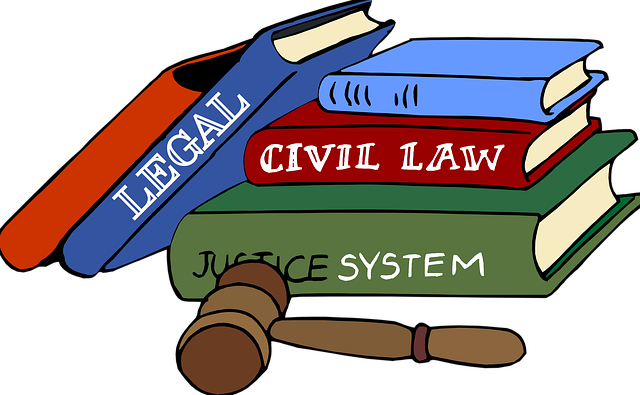Understanding environmental crime laws is vital for resolving breach of contract disputes related to environmental protection. Identifying contract breaches and employing strategic approaches ensure accountability while mitigating penalties. Effective evidence collection, thorough legal interpretations, and restorative sentencing are key in shaping case outcomes. Learn these processes to navigate complex disputes successfully.
“Environmental Crime Trials: Navigating Legal Complexities and Resolving Disputes
This comprehensive guide delves into the intricate world of environmental law, focusing on how to resolve breach of contract disputes. From understanding governing regulations to implementing effective legal strategies, we explore key aspects. Learn about identifying contract breaches in environmental cases, evidence collection techniques, and sentencing approaches. By examining these components, we aim to highlight the steps towards justice in environmental crime trials.”
- Understanding Environmental Crime Laws and Regulations
- Identifying Contract Breaches in Environmental Cases
- Evidence Collection: Documenting the Offence
- Legal Strategies for Prosecution and Defence
- Resolving Disputes: Sentencing and Restorative Justice
Understanding Environmental Crime Laws and Regulations

Understanding Environmental Crime Laws and Regulations is a complex yet essential step in navigating how to resolve breach of contract disputes related to environmental protection. These laws and regulations are designed to safeguard our natural resources and ensure accountability for those who violate them. They cover a wide range, from pollution control to habitat preservation, and include both federal and state-level statutes.
Effective resolution of breach of contract cases often involves meticulous adherence to all stages of the investigative and enforcement process. By understanding these legal frameworks, individuals and organizations can better protect themselves from potential charges and achieve extraordinary results in dispute settlement. A comprehensive knowledge of environmental crime laws equips parties with the tools to prevent, mitigate, and resolve conflicts related to contractual obligations, ultimately fostering a culture of responsibility and compliance.
Identifying Contract Breaches in Environmental Cases

Identifying contract breaches in environmental cases is a critical step in navigating complex legal disputes. When an agreement between parties involves environmental protection or conservation, deviations from the set terms can have significant implications. These breaches often manifest as non-compliance with regulatory standards or failure to meet contractual obligations related to waste management, pollution control, or habitat preservation. Legal professionals must carefully review documentation and conduct thorough investigations to uncover these discrepancies.
Understanding how to resolve breach of contract disputes is essential for all stages of the investigative and enforcement process. In environmental cases, this may involve negotiating settlements or presenting evidence in court to secure a complete dismissal of all charges. Given the nature of white-collar and economic crimes, it’s crucial to employ strategic approaches that balance justice with effective resolution, ensuring accountability while mitigating potential penalties.
Evidence Collection: Documenting the Offence

In Environmental Crime Trials, evidence collection plays a pivotal role in determining the outcome of the case. Documenting the offence with precision and thoroughness is essential to build a robust case for both prosecution and defence. This involves meticulous record-keeping, including photographic evidence, video documentation, and detailed reports from environmental experts. Each piece of evidence must be meticulously labelled and stored to ensure its integrity and admissibility in court.
A winning challenging defense verdict often hinges on how effectively the defence team can counteract the prosecution’s evidence. By employing strategic tactics such as cross-examining witnesses, challenging the methodology behind data collection, and presenting alternative explanations, defendants can achieve complete dismissal of all charges across the country. This intricate process requires a deep understanding of environmental regulations and legal procedures, making it crucial for both parties to assemble comprehensive and irrefutable evidence.
Legal Strategies for Prosecution and Defence

In Environmental Crime Trials, both prosecution and defence teams employ strategic legal approaches to navigate complex environmental regulations and their interpretations. The prosecution, aiming for justice and deterrence, focuses on presenting strong evidence linking defendants to environmental violations. They leverage scientific reports, expert witness testimonies, and documentary proof to demonstrate the adverse impact of criminal activities on ecosystems and communities.
Defence strategies, particularly in white-collar defence cases, often involve challenging the interpretation of laws and regulations. Lawyers for accused individuals may argue for a complete dismissal of all charges by questioning the validity of evidence or raising legal technicalities. They could also present mitigating circumstances, such as corporate mismanagement or lack of intent to cause harm, to secure more favourable outcomes for their clients. How to Resolve Breach of Contract Disputes within these trials becomes pertinent when understanding the nuances of environmental laws and their enforcement.
Resolving Disputes: Sentencing and Restorative Justice

In environmental crime trials, resolving disputes extends beyond mere legal arguments and often involves intricate sentencing considerations. The pursuit of justice doesn’t stop at proving guilt; it encompasses crafting solutions that not only penalize offenders but also encourage restoration and prevention. Restorative justice approaches are gaining traction in these cases, focusing on the impact of crimes on communities and ecosystems. By involving victims, perpetrators, and stakeholders, these processes aim to heal wounds and foster accountability.
Sentencing strategies play a pivotal role in achieving balance. Courts can employ various techniques, such as fines, community service, or restitution, to hold offenders accountable while also offering opportunities for redemption. The goal is to create a winning challenging defense verdict scenario where justice is served without exacerbating the harm caused by environmental crimes. Across the country, successful cases demonstrate that achieving extraordinary results in these trials is feasible through thoughtful sentencing and restorative practices.
Environmental Crime Trials require a comprehensive understanding of legal frameworks, evidence handling, and dispute resolution strategies. By navigating the intricacies of environmental laws, identifying contract breaches, and employing effective legal tactics, both prosecutors and defenders can ensure justice is served. Understanding how to resolve breach of contract disputes is pivotal in these cases, as it paves the way for restorative justice and prevents future environmental infractions. Through proper sentencing and innovative approaches like restorative justice, these trials can foster a more sustainable and accountable society.






